Global contexts in MYP Science

Engaging with "why" in MYP Sciences through the global contexts
If you’ve ever been asked by one of your students: “Why are we learning this?” or “Why is this important for me to understand?” you’ll know that your ability to successfully answer these types of questions can often have a direct effect on students’ motivation to learn. You’ll also know that the MYP global contexts offer accessible ways to not only provide relevance and meaning for learners, but also to support the International Baccalaureate’s mission to “develop inquiring, knowledgeable and caring young people who create a better and more peaceful world through intercultural understanding and respect”.
The MYP does not provide a prescribed curriculum, but a methodology for content delivery and a framework for teaching and learning. Contextualizing the delivery of subject group content can offer the possibility of new perspectives and refinements of understanding.
Global contexts: how?
For each MYP unit, you should identify one global context that establishes a focus for meaningful teaching and learning. Once chosen, the global context should be clarified through a specific exploration (examples of specific explorations can be found within the section on “Inquiry: Establishing the purpose of the unit” in the document MYP: From principles into practice). Often, the most relevant link to a unit’s identified global context can come through the intentional and thoughtful design of a criterion D (Reflecting on the impacts of science) summative assessment task.
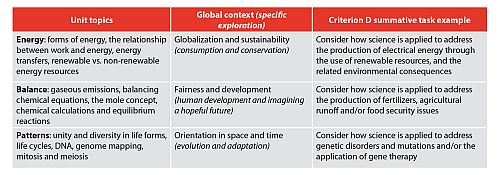
In the first example listed above, a year 1 modular sciences course asks students to engage with a physics unit on energy; the unit topics might include forms of energy, the relationship between work and energy, energy transfers, and differences between renewable and non-renewable resources. If the global context of Globalization and sustainability is used to frame these topics (while focusing on the specific exploration of “consumption and conservation”), a criterion D summative assessment task in which students would be asked to engage with this context and exploration could be related to the application of science in addressing electrical energy production through renewable resources; this might take the form of an essay or a presentation.
Or, consider the second example in which a year 5 integrated chemistry course engages students through a unit on balance; the unit topics might include environmental implications of gas emissions, balancing equations, the mole, chemical calculations, and equilibrium reactions. If the global context of Fairness and development is used to frame these topics (while focusing on the specific exploration of “human development and imagining a hopeful future”), a criterion D summative assessment task in which students would be asked to engage with this context and exploration could be related to the application of science to address fertilizer production, the environmental implications of agricultural runoff and/or food security issues; this might take the form of a case study or debate.
Global contexts: why?
In part, global contexts provide a common language for powerful contextual learning because they invite opportunities to identify specific settings, events or circumstances that provide more concrete perspectives for studying scientific content. These can inspire explorations of our common humanity and shared guardianship of the planet and invite reflection on local, national and global communities, as well as on some of the real-life issues and concerns of our students. While concepts are compelling ideas with broad application, contexts can offer the possibility of new perspectives and refinements of understanding.
Sharp distinctions between “local”, “national” and “global” issues become blurred in the face of emerging institutions and technologies that transcend modern nation states. New challenges that are not defined by traditional intellectual or geographical boundaries call for students to develop the agility and imagination necessary to thrive in an increasingly complex world. When asked by students “Why would people care about this topic?”, we can harness the power of the MYP global contexts to provide common entry points for inquiring into what it means to be internationally minded, and thereby frame our exploration of the subject to promote relevancy, intercultural understanding and global engagement.
 |
Rachel Poirier has been an MYP Sciences and Mathematics teacher, MYP coordinator, school evaluator and teacher trainer in the Americas and AEM regions for 14 years. She currently coordinates the MYP Building Quality Curriculum service for the IBO. |
MYP Science: A Concept-Based Approach
Build the knowledge and skills that prepare learners for the IB Diploma from age 11
Search results
|
Product 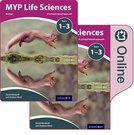
|
MYP Life Sciences: a Concept Based Approach: Print and Online PackBuild scientific confidence and drive conceptual connections Author Andrew Allott 978-0-19-837008-6 Pack | 24/10/2019 Price: £44.99 +VAT |
|
Product 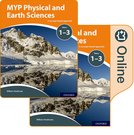
|
MYP Physical and Earth Sciences: a Concept Based Approach: Print and Online PackBuild scientific confidence and drive conceptual connections Author William Heathcote 978-0-19-837009-3 Pack | 17/10/2019 Price: £44.99 +VAT |
|
Product 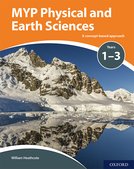
|
MYP Physical and Earth Sciences: a Concept Based ApproachBuild scientific confidence and drive conceptual connections Author William Heathcote 978-0-19-836998-1 Paperback | 10/10/2019 Price: £33.99 Also available as an ebook |
|
Product 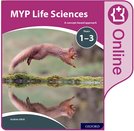
|
MYP Life Sciences: a Concept Based Approach: Online Student BookBuild scientific confidence and drive conceptual connections Author Andrew Allott 978-0-19-837004-8 Digital Licence Key | 26/09/2019 Price: £33.99 +VAT |
|
Product 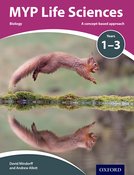
|
MYP Life Sciences: a Concept Based ApproachBuild scientific confidence and drive conceptual connections Author Andrew Allott 978-0-19-836997-4 Paperback | 19/09/2019 Price: £33.99 Also available as an ebook |
|
Product 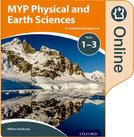
|
MYP Physical and Earth Sciences: a Concept Based Approach: Online Student BookBuild scientific confidence and drive conceptual connections Author William Heathcote 978-0-19-837005-5 Digital Licence Key | 05/09/2019 Price: £33.99 +VAT |
|
Product 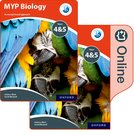
|
MYP Biology: a Concept Based Approach: Print and Online PackBuild scientific confidence and drive conceptual connections Author Andrew Allott and Author David Mindorff 978-0-19-837006-2 Pack | 29/06/2017 Price: £59.99 +VAT |
|
Product 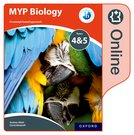
|
MYP Biology: a Concept Based Approach: Online Student BookBuild scientific confidence and drive conceptual connections Author Andrew Allott and Author David Mindorff 978-0-19-836999-8 Digital Licence Key | 08/06/2017 Price: £45.99 +VAT |
|
Product 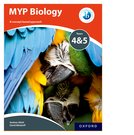
|
MYP Biology Years 4&5Build scientific confidence and drive conceptual connections Author David Mindorff and Author Andrew Allott 978-0-19-836995-0 Paperback | 08/06/2017 Price: £45.99 Also available as an ebook |
© 2024 Oxford University Press. All rights reserved.




